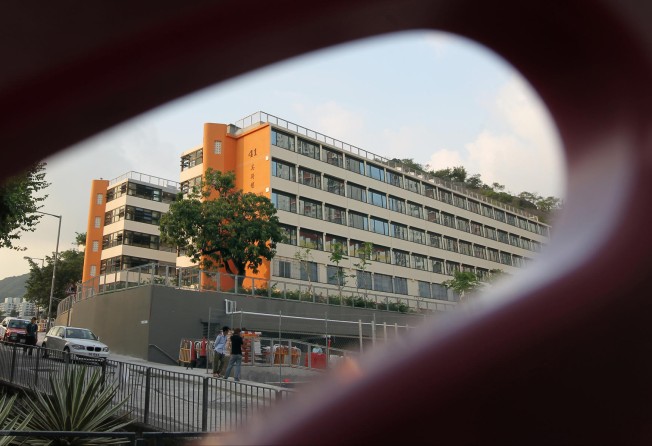Historic Shek Kip Mei Estate to open its doors to backpackers
But travellers can expect to pay at least double the rates of other YHA hostels, which the association says is reasonable given its location

Backpackers and budget travellers staying at a soon-to-open youth hostel in a converted public housing block will pay at least double the amount charged in other hostels.
But the Youth Hostels Association, which has taken over Mei Ho House, the last remaining block of the historic Shek Kip Mei Estate, says the prices will be reasonable given its urban location.
It will start taking guests from October 24 but it will be open for public visits two days before.
Characterised by two identical wings linked by a cross-piece forming an H-shaped complex, the building has 129 rooms including multi-bed dormitories and double rooms, a museum on public housing, communal space and an outdoor sitting area.
The association said yesterday it would wait until the last minute to disclose the room rates for commercial reasons.
But association chairman Michael Wong Yik-kam said the price "will be at least double the rates of the six other hostels also run by the association". The prices would make reference to the rates of hotel rooms in the same district and the ability of overseas and local guests to pay, he said.
A stay at the Jockey Club Mt Davis Youth Hostel, perched 269 metres up Mount Davis in Pok Fu Lam, costs from HK$120 a night for a dormitory bed to HK$540 for a double room for association members. The average hotel rate in the city was HK$1,489 last year, according to the Tourism Board.
As well as Mei Ho and Mt Davis, the association also runs hostels in rural areas such as Tai Mei Tuk, Ngong Ping, Chek Keng, Tai Mo Shan and Pak Sha O.
Wong said the higher price at Mei Ho would be reasonable given its location, transport access and uniqueness. "Mei Ho has iconic status in the public housing history of Hong Kong. It also reflects the old days in the city, when the Hong Kong spirit prevailed and when this place developed from a fishing village to the international financial centre it has become today," Wong said.
The grade-two historic building was among the first six-storey resettlement blocks built in 1954 after the Shek Kip Mei fire left 50,000 squatters homeless.
It lay vacant from 2004 until the government approved expenditure of HK$202.3 million to turn it into a hostel in 2010.
A museum housed in the building will provide an insight into the daily life of former residents at Shek Kip Mei. Four sample units will take visitors back to the 1950s and 1970s. Historical photographs will show how the flats were arranged. Most of them were 120 sq ft.
About 40 former residents of the estate will be invited to be tour guides.